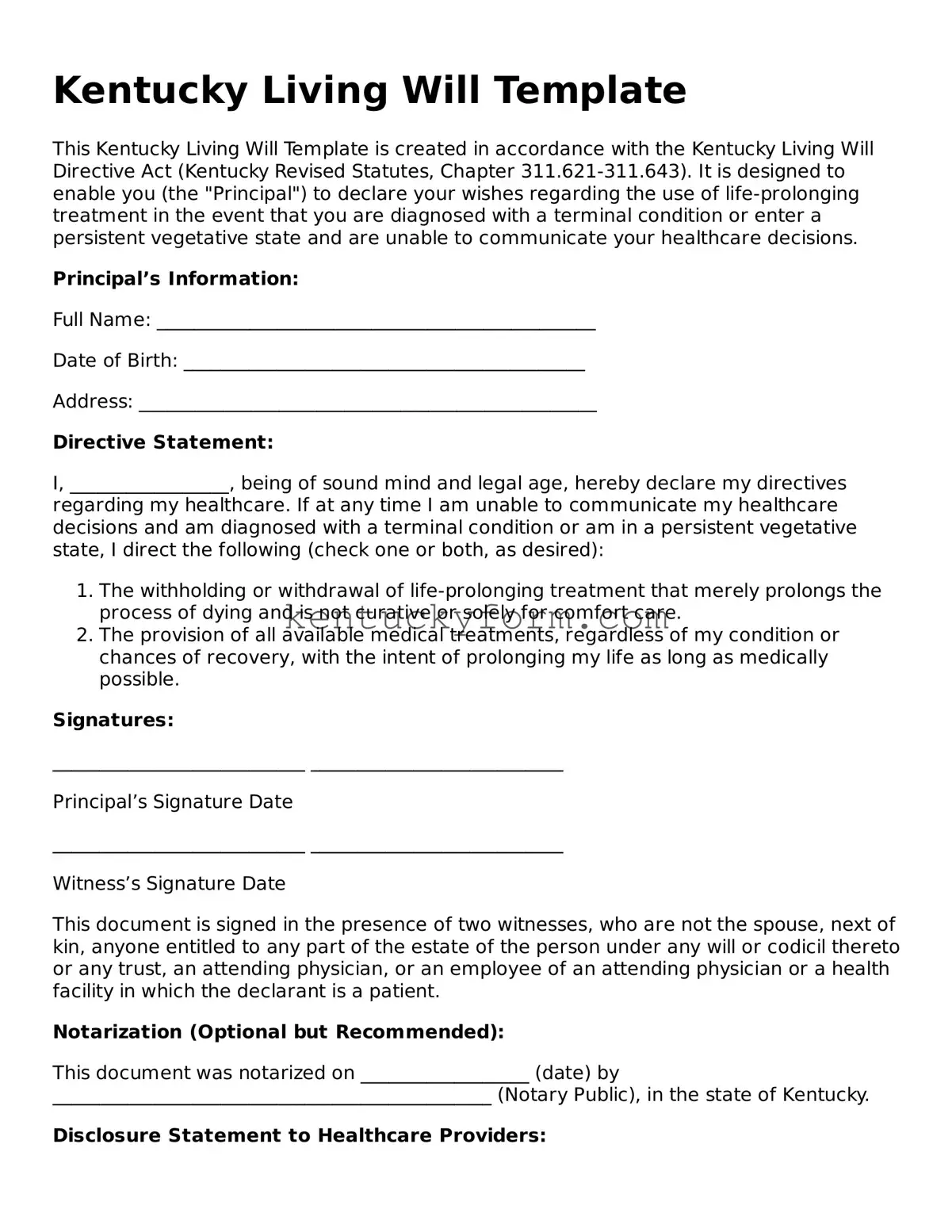Free Living Will Form for the State of Kentucky
A Kentucky Living Will form is a legal document that lets individuals state their wishes for medical treatment in the event they become unable to communicate due to illness or incapacity. This form is crucial for ensuring that one's healthcare preferences are known and respected by family members and medical providers. For those interested in creating a clear and legally binding record of their medical treatment preferences, filling out this form is an essential step toward peace of mind.
Modify Document

Free Living Will Form for the State of Kentucky
Modify Document

Modify Document
or
Free Living Will File
One quick step left to finish
Edit, save, and download Living Will online with ease.